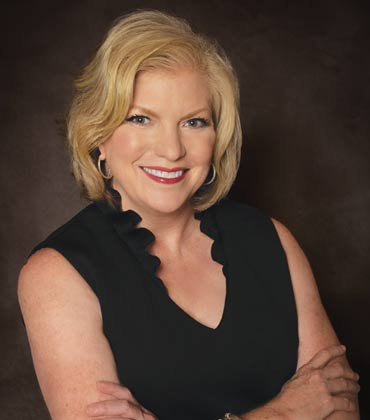Anne Mary has been a medical psychologist for the past fifteen years and has retained the position of medical director of Indiana University Health for seven years. She is passionate about wellness and sharing psychological information that can enhance productivity and insight in everyday functioning. Anne Mary is devoted to improving the quality of life for patients and providers by disseminating knowledge on the impact of mental and emotional states on health and well-being.
What are some of your key roles and responsibilities as a medical director?
I work with administrators and physicians to provide patients with care that encompasses both the body and mind.
Medical professionals who treat patients with physiological needs frequently refer them to me for psychological needs as well.Psychological needs may have existed prior to the medical condition or may have been triggered by the current medical situation. My role is to provide assessment and treatment of patients who haveneeds on both sides.
Iam responsible for giving a holistic assessment and treatment of patients for their wellness and also provide psycho-education to professionals who need program development and sometimes even direct care for their team, where they may be experiencing burnout or other challenges inherent to work in a high-stress environment.
What are some of the major trends and challenges that exist in the medical industry?
The pandemic is one of the greatest challenges that the medical space has seen, yet it has opened up an opportunity forincreased mental health awareness. Mental health discourse has reached a point of openness that was previously seen asmore stigmatizing before the onset of Covid-19 pandemic.
The lack of conversation about mental health issues has been a tremendous barrier between the patients and the care provider. I think stigma has been a huge issue not only in manypatients’ minds, but also in other providers’ minds, so it is important to increase education about mental health among professionals within healthcare space. It’s also crucial to help patients understand and be aware of the support available for both the mind and body. This will make mental health more accessible to everyone.
What are the recent developments in the medical field that will shape the future?
A deep understanding of the industry today gives a vision for its future. With the destigmatization of mental health, psychologists are increasingly coming to the forefront of care, not only to provide direct assessment and treatment but also to develop interdisciplinary health programs, especially in partnership with their physician and advanced providers. These kinds of collaborations will become more widespread, for example, with psychologists being directly involved in primary or specialty medicaltreatment. This can further evolve to provide patients not only mental health guidance but also an interdisciplinary whole-team approach to focus on the needs of the patients at the time of care delivery, where we know their needs are more intense, and we can work together to meet them in real time.
What is your piece of advice to a fellow peer to navigate these changing world orders?
The advice would be to be conscious of the increasingly interactive environment and new ways in which our society has interconnected communication and technology across various disciplines, which will afford us unprecedented ways to be connected. Fields like medicine and psychology that were previously in their silos are now working collaboratively, not only with each other, but with patients as well. It is important that professionals have a holistic understanding of what’s happening outside their silos. It gives us insight into what greater assistance our peers and patients might need, so we can partner together across medicine and psychology to better meet their needs on the mind-body frontier.


